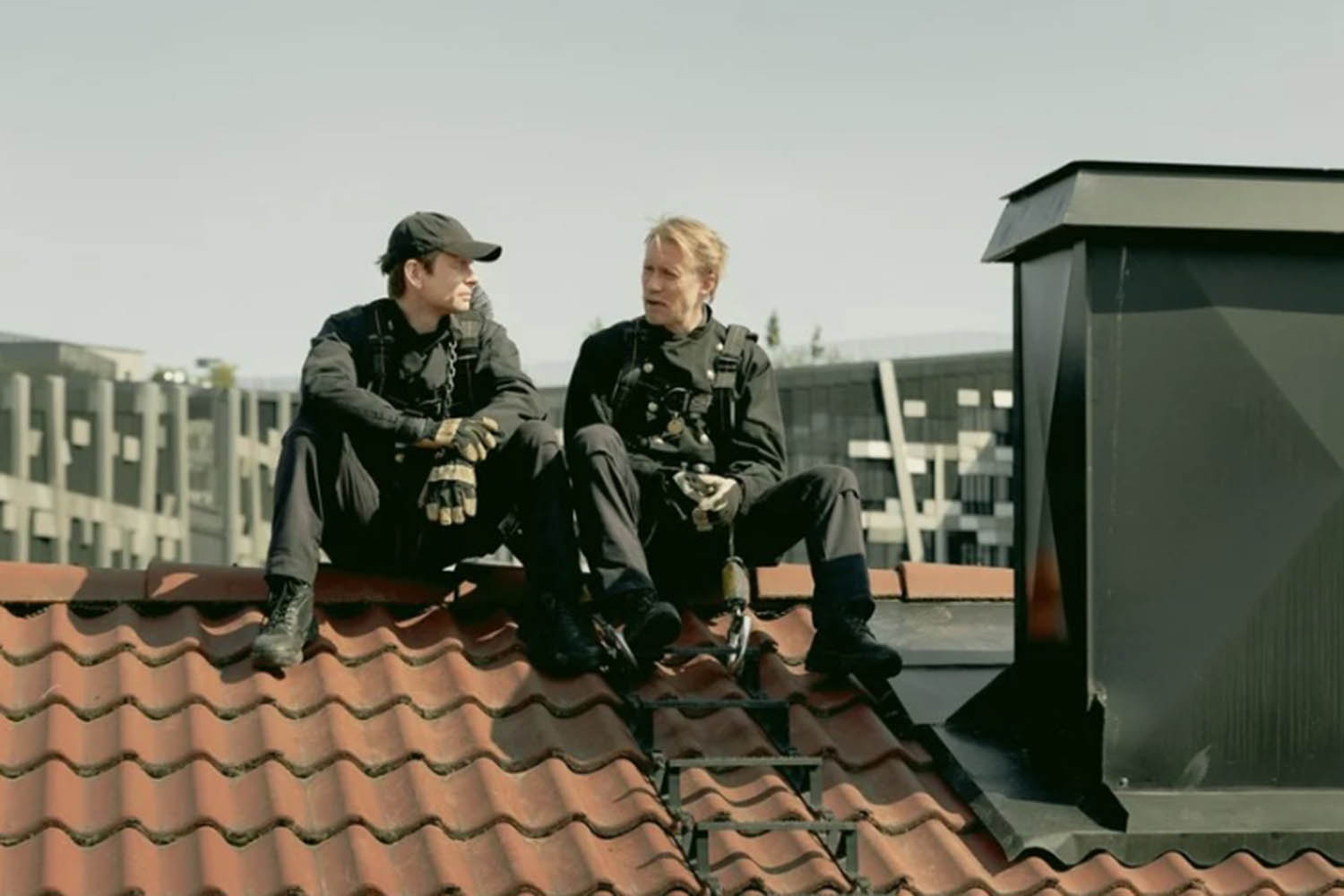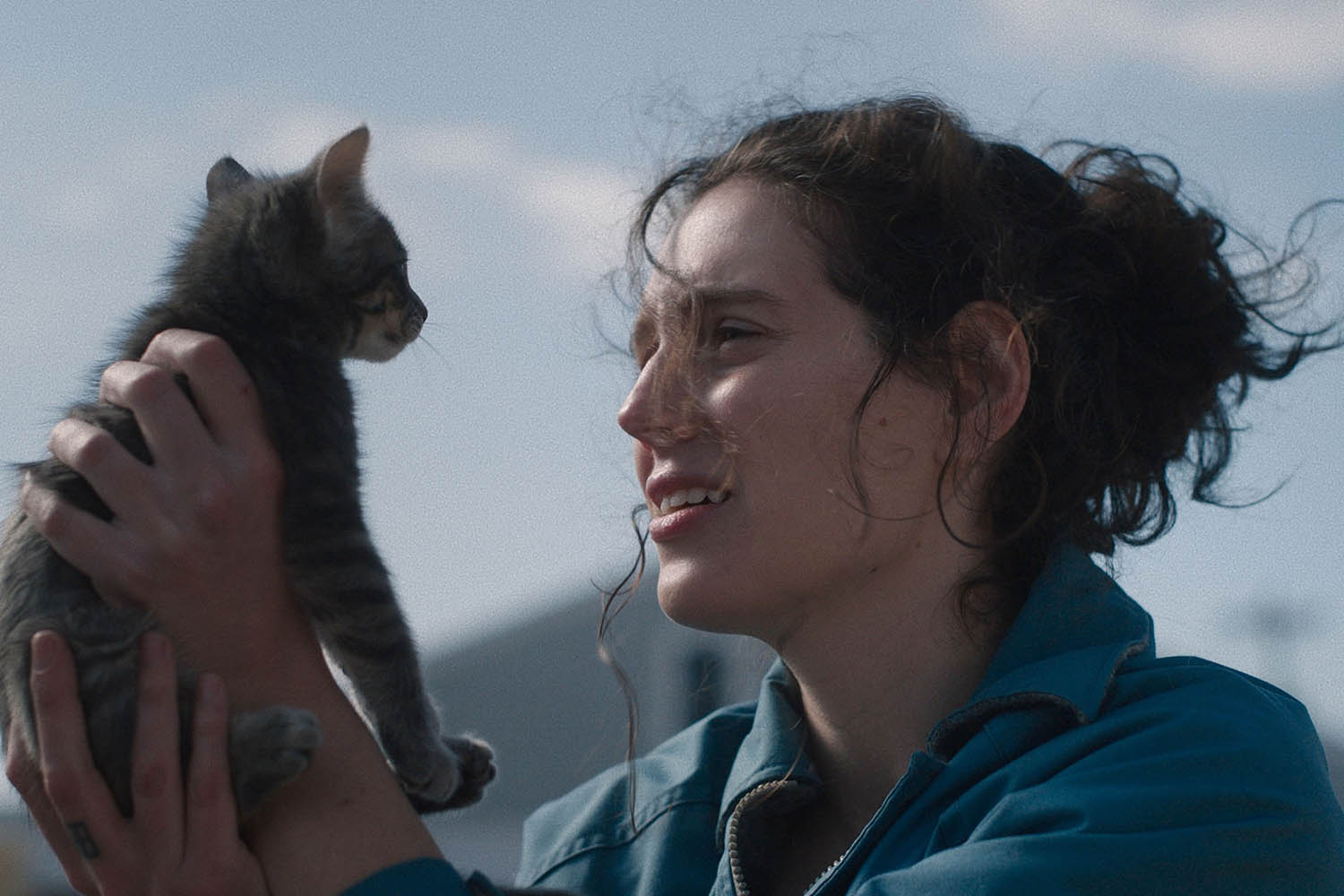Sorry, Baby
(103 mins, 15) Directed by Eva Victor; starring Eva Victor, Naomi Ackie, Lucas Hedges
There’s something undeniably thrilling about watching a directorial debut and catching the first glimpses of future greatness in the film-maker behind it. It happens a couple of times a year – maybe more if you’re lucky. But films such as the phenomenal Sorry, Baby, the first feature from American actor-writer-director Eva Victor, are more uncommon.
This supremely confident comedy drama about friendship, survival, sandwiches, the kindness of strangers and life-shattering abuses of trust, doesn’t just hint at future greatness: it arrives fully formed. It’s personal, playful, intimate and honest.
Sorry, Baby is very funny in an inviting, unforced way – like being welcomed into a group of close friends and their in-jokes. But for all the skittish, appealingly gauche humour, this feature has a serious core: like Michaela Coel’s I May Destroy You, it’s about reclaiming the narrative of a life after a rape.
Mentored by Moonlight director Barry Jenkins, who is listed as one of the producers on this movie, Victor drew on their own life while writing the screenplay. During interviews, they preferred not to discuss the specifics of the event, but this film, in which Victor takes the central role of English literature academic Agnes, speaks profoundly and articulately about the processing of, and healing from, a sexual attack. Sorry, Baby acknowledges that a rape is an event that can change a life, but pushes back against the idea that victimhood inevitably defines it.
Part of the reason the movie is so successful is its cleverly arranged structure. Divided into chapters that span a five-year period and are assigned titles such as The Year With the Bad Thing and The Year With the Good Sandwich, the picture unfolds mostly chronologically, but is bookended by scenes from the final year, The Year With the Baby. Crucially, this means that before we are confronted by the Bad Thing, we get to experience one of the best things in Agnes’s world: her friendship with Lydie (Naomi Ackie).
It’s a special bond, this platonic love between two best friends from an unspecified north-eastern US graduate school, who reunite at the start of the film (Lydie had subsequently moved to New York). Victor’s writing tunes into the conversational cadences and peels open the private shorthand of two people who know each other so well they can practically read each other’s souls. It’s a friendship that is brought to life by giving, generous performances from both actors.
This, together with Agnes’s growing bond with her neighbour (Lucas Hedges) and an exquisite scene with a gruff diner proprietor (John Carroll Lynch) is what we take from the film – a sense of hope replenished by the good in the world rather than destroyed by the very Bad Thing.
The Life Of Chuck
(110 mins, 15) Directed by Mike Flanagan; starring Tom Hiddleston, Chiwetel Ejiofor, Karen Gillan
The danger with ultra high-concept dramas, such as this earnest adaptation of a novella by Stephen King, is that clever conceits all too easily tip over into synthetic contrivance. If The Life Of Chuck, which was written and directed by Mike Flanagan (Doctor Sleep), just about manages to stay on the right side of that tricky balance, it’s largely thanks to solid work from the cast. The performances ground the film when it threatens to spin off into magical realist mawkishness.
Tom Hiddleston plays the eponymous everyman Chuck, AKA Charles Krantz, an unremarkable accountant who contains multitudes (the film leans so far into this idea you worry it might topple headfirst). Three stages of Chuck’s life are explored, in reverse order, through corresponding chapters. The audacious standout is the first, which also contains the picture’s finest performance from Chiwetel Ejiofor, who plays a weary middle-school teacher trying to keep it together as the world crumbles around him.
Less successful is a slightly sneering voiceover by Nick Offerman, a device that holds the audience at arm’s length even as the sweetly melancholy story attempts to pull us into its embrace.
Put Your Soul on Your Hand and Walk
(113 mins, TBC) Directed by Sepideh Farsi; featuring Fatma Hassona
There has been little to smile about in Gaza over the last 22 months. And yet the smile – wide, warm, unshakably positive – is the first thing you notice about this documentary portrait of the Palestinian photojournalist Fatma Hassona (sometimes spelled Fatima Hassouna). In a series of conversations with Iranian director Sepideh Farsi, Hassona beams when she talks about her family, her people and her city.

Fatma Hassona’s ‘wide, warm’ smile lights up the screen in Put Your Soul on Your Hand and Walk
The film is scrappy – rough and ready in approach by necessity – and due to the snatched, scattershot nature of the communications, it can feel a little superficial at times. But through ripped fragments of news footage, the conversations between the two women and Hassona’s arresting photography, we build a picture of life in Gaza under bombardment. Hassona was killed, along with six family members, on 16 April this year.
Oslo Stories Trilogy: Sex
(118 mins, 15) Directed by Dag Johan Haugerud; starring Thorbjørn Harr, Jan Gunnar Røise, Siri Forberg
The third film of Dag Johan Haugerud’s Oslo Stories Trilogy, Sex is the least successful. Like the other two films, it is densely dialogue-heavy, following two chimney sweeps grappling with midlife discoveries about their sexuality.

Two chimney sweeps grapple with their sexuality in Oslo Stories Trilogy: Sex
Unlike those films, however, it feels repetitive, laboured and lacking in the sparky wit and insights that made Dreams and Love such delights. Trilogy completists will no doubt seek it out, and will perhaps relish a fleeting appearance of a character who takes a substantial role in Love and appears in a cameo in Dreams. But as a self-contained entity, Sex struggles to stay the distance.
Photographs by A24/Reves D’EAU productions/Motleys
Newsletters
Choose the newsletters you want to receive
View more
For information about how The Observer protects your data, read our Privacy Policy

